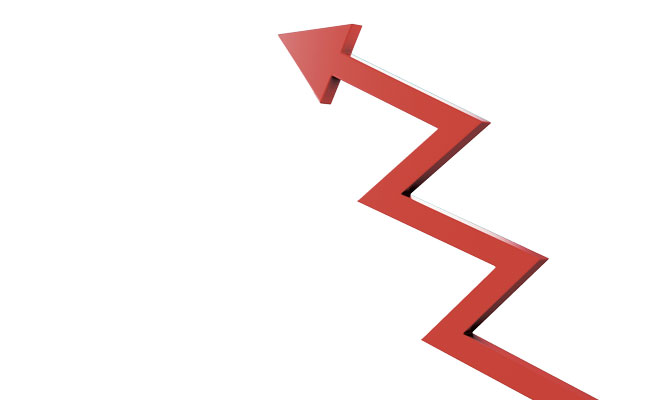
Illustration: AlexSecret/iStock/Getty Images Plus/Getty Images
Paycheck Protection Program (PPP) loans increased and extended unemployment benefits. The stock market and crypto currency market rose quickly, and not just for professional investors. Money is everywhere, chasing limited goods and services where production stalled because of a worldwide pandemic. And there it is folks: Economics 101. Inflation is the highest it has been in decades.
What is a pest management professional (PMP) supposed to do? Let’s break it down into three areas
of concern.
SUPPLY CHAIN ISSUES
The world supply chain was interrupted because producers anticipated less economic activity as people were locked down due to the pandemic. Compound that with workers staying home, fearing the pandemic for themselves and their families, and the government providing funds for people to stay home and weather the storm. As this economic slowdown was orchestrated with little-to-no visibility, a natural reaction to a catastrophe is to overshoot the reaction — and that’s exactly what happened.
I am not in any way downplaying the severity of the pandemic, but I am pointing out the fact that there was plenty of economic activity during the lockdowns, and some very unexpected productivity benefits derived, such as working from home.
As the economy has reopened, the supply chain that had been dialed back cannot meet the demand of the new normal. When demand exceeds supply, prices go up. Are there opportunists gouging purchasers? That’s a discussion for another day. However, prices and availability of certain items are being affected.
This seems to be a short-term problem that should correct itself in due time. But what are PMPs to do short-term? When it comes to vehicles, if possible, hold on to what you have. Buy only what you need, understanding that production will normalize, and circumstances will change. With materials, buy what you can, and try to find substitutes for what you can’t. With labor, have patience (and referrals).
EXPENSES
What costs go into performing our services? Remember how your profit and loss (P/L) works. If we assume chemicals increase by 20 percent, and chemical expense represents 5 percent of our P/L, that
20 percent takes a 1 percent bite out of your profit. That’s not great, but it’s workable.
Now, let’s assume that technician labor increases by the same 20 percent. All in, including payroll taxes, benefits, etc., the technician payroll represents 25 percent of our P/L. We have just taken a 5 percent bite out of our P/L.
Clearly, the focus needs to be on labor because the effect is much greater. But what can we do? Well, trying to pay less than the market rate for chemicals and labor probably won’t yield you a positive outcome. The only things you can do is get more efficient and/or raise prices.
REVENUE
How much should we charge our customers? If we increase our route efficiency to decrease windshield time, that has the effect of increasing revenue. I would start there. However, if you already are as efficient as possible, you need to raise prices. How much? The above examples would suggest 6 percent will enable you to break even. But these are just two expense categories. What about fuel, insurance and non-technician payroll?
You need to go through your P/L and determine how inflation is affecting you. Determine how much to raise your prices, and just do it.
I realize raising prices always comes with reservations. Be flexible. Determine how far you are willing to accept pushback. Understand that your profit and, ultimately, your business is at stake. As uncomfortable as raising prices may be, it must be done.
If there’s one thing to take comfort in going through this process, it’s that you’re not alone. All businesses are going through the same issues and are raising their prices. The public is getting used to seeing this happen everywhere. They may not be happy about it, but most seem to be willing to accept it.
Leave A Comment